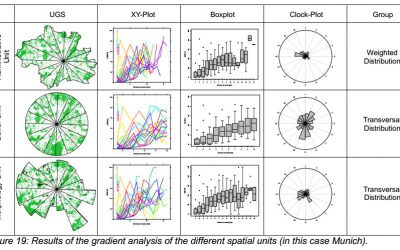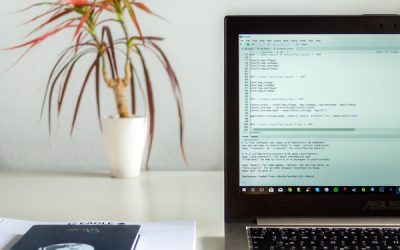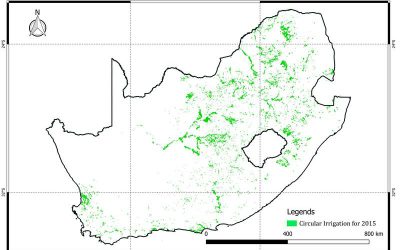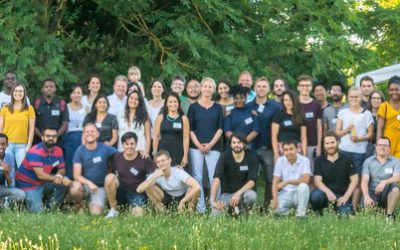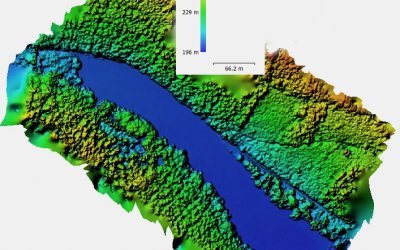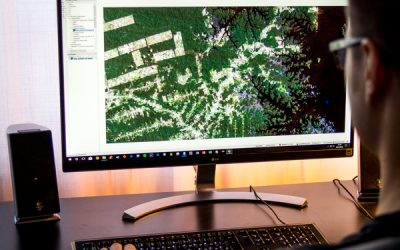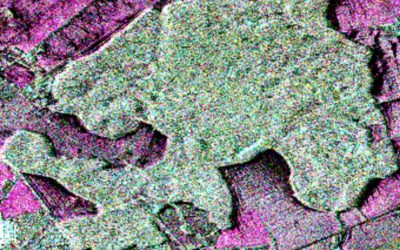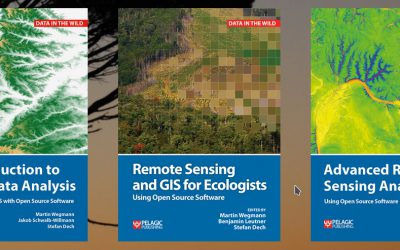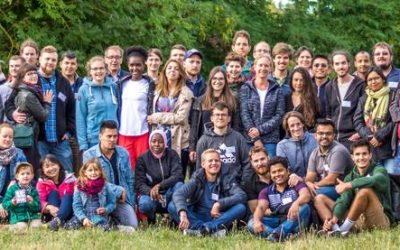Aim
Programming and geostatistics for environmental data analysis will be introduced. Advantages of coding approaches are discussed, theory of coding and statistics covered and practical examples provided.
Content
Theoretical basics and practical examples of programming and geostatistics focused on application within remote sensing and GIS are covered. Basic functionality such as script structure, implementation, functions, loops as well as programming syntax using the R language are introduced. Moreover, statistical basics related to environmental analysis are covered ranging from spatial queries to spatial models, e.g. classification and regression.
Coding
Coding examples and individual work will be covered
Software
Various software programs will be used, but mainly OpenSource software such as R.
Techniques
Different techniques will be introduced and practically applied.
Content
The background and application of programming and statistics will be covered.
General Course News and Updates
M.Sc. presentation by Marina Reiter
Marina Reiter will present her M.Sc. thesis "Comparing Urban Green Spaces in German Cities Using Remote Sensing Data" on Thursday 8th of August at 11am in OKW 86, 0.004. Looking forward to a great presentation and lively discussion afterwards. From her abstract: "The...
EAGLE presentations
A wide range of internships, innovation labs and M.Sc. idea presentations will take place next Monday (July 29th) in room 0.004, OKW 86. Everybody is invited to join the presentations and discussions: Morning session (10am - 12pm): Katrin Hasenbein (internship)...
M.Sc. defense by Bharath Selvaraj
Bharath Selvaraj will defend his M.Sc. thesis on August 8th at 10am in room 0.004. From the abstract of his thesis: "Over the centuries, humanity made immeasurable progress in both technological innovation and medicine. This progress comes at the cost of environmental...
EAGLE Summer Dialogue 2019
Our 2019 EAGLE Summer Dialogue was a great success again and thanks a lot to all our EAGLE students who organised it. More than 100 participants enjoyed talks by Sandra Lohberger (RSS GmbH) and Alfred Schumm (WWF) who covered beside the technical aspects of their work...
Field Work Course 2019
Within the EAGLE program many Earth Observation applications and techniques are introduced and practically executed with quite some computer work. However, remote sensing research also requires a sound understanding of the study area. Field work is therefore a crucial...
Internship and Innovation Lab presentations
on Monday 15th of July at 10 a.m. in room 0.009 (OKW 86) we will have another series of internship and innovation lab presentations plus on M.Sc. idea presentation: (Internship) Marius Philipp -- "Mono Delta Monitoring System (MODES)" (Internship) Silvan...
Innovation Lab and thesis presentation
On Thursday 27th of June at 10am in room 0.004 (OKW 86) the following students will present their M.Sc. idea and their innovation lab outcome: Thesis idea presentation by Johni Miah:"Detecting and Assessing Ground Subsidence of Dhaka City, Bangladesh, using Synthetic...
textbooks on remote sensing
Our already published textbook on "Remote Sensing and GIS for Ecologists - using Open Source software" was very well perceived and we got very positive feedback. However, either an introduction or more advanced methods and data was asked for as well. Hence, we decided...
EAGLE summer dialogue 2019
Our next EAGLE summer dialogue to bring together all EAGLE students and lecturer, staff of our department and all colleagues from close and far away is slowly approaching. On June 28th we welcome again everybody to join us for the EAGLE summer event with two keynotes:...
Julia Sauerbrey successful M.Sc. defense
Congratulations to Julia Sauerbrey who successfully presented her M.Sc. thesis. Read more about her interesting research project.

